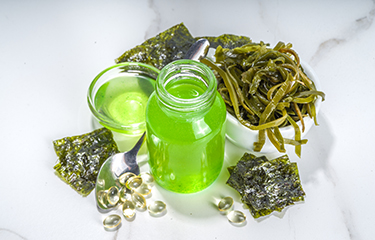Market acceptance of seafood alternatives is increasing in tandem with a general rise in global seafood demand, according to a recent study released by global consulting firm McKinsey and Company.
The alternative seafood sector comprises plant-based seafood, which includes seafood analogs made from soy, seaweed, yeast, oils, and starches; cell-cultivated seafood, which includes seafood analogs that companies harvest from the cells of fish; and fermentation-enabled seafood products, which includes seafood analogs stemming from three production methods: traditional fermentation, biomass fermentation, and precision fermentation. Analogs already in the market include plant-based shrimp, tuna, salmon, caviar, squid, and crab analogs, and more are on their way.
The McKinsey report, “The next wave: Alternative seafood solutions,” predicts 14 percent growth in global fish protein demand through 2030. Due to limitations on wild catches and aquaculture growth, scaling up production of seafood alternatives could be an effective means of meeting this demand, it found.
“This lack of supply is primarily driven by regulatory constraints around new farming licenses, some of which are imposed to secure sustainable farming, as well as protections for wild fish,” the report found. “Alternative seafood products don’t face these restrictions, making them one option for scaling production. Plant-based fish sticks have existed for many years. More recently, alternative seafood has seen the emergence of ‘whole-cut’ products and sushi-ready items, such as those that replicate smoked salmon. These and other innovations pose an attractive path forward for the industry.”
Identifying and studying barriers to scaling the seafood alternative sector "will be critical to capitalizing on potential sources of advantage," McKinsey found.
“Plant-based products have led the alternative-protein market, in part because they make use of widely available ingredients and require less investment in biotechnology," the report said. “Clearly, alternative seafood offers significant potential impact. It can not only reduce the environmental impact of fishing and reduce pressure on fisheries but also provide a healthy alternative and expand access to protein in a more efficient manner."
A major factor impeding the uptake of alternative seafood is its relatively high price, though the sector is working to bring down the costs of production to match what consumers currently pay for higher-end seafood species, the report said.
“These higher-end species are attractive for producers of alternative options, at least for the time being, because their target prices are more achievable,” the report found. “In fact, this is part of alternative seafood’s competitive advantage over meat: Fish often sells at a higher price point.”
The seafood alternatives sector is facing an additional headwind: pushback from some elected officials. In April, Italy's government proposed a ban on all lab-cultivated seafood proteins, including cell-cultured seafood, and a state representative in the U.S. state of Florida has introduced legislation that would make it a second-degree misdemeanor to sell or distribute any cell-based products.
Plant-based seafood labels have also recently been accused of deceit by Conxemar, a trade association representing the Spanish seafood industry. Conxemar has called on the Spanish Ministry of Consumer Affairs to withdraw permission for the sale of plant-based seafood products using the names of fish on their labels.
The Spanish coalition denounced “fraud in the labeling and presentation of plant-based seafood products,” saying products do not comply with several national and European regulations, such as fair competition practices, food product advertising laws, and food safety and nutrition rules.
Photo courtesy of Rimma Bondarenko/Shutterstock







